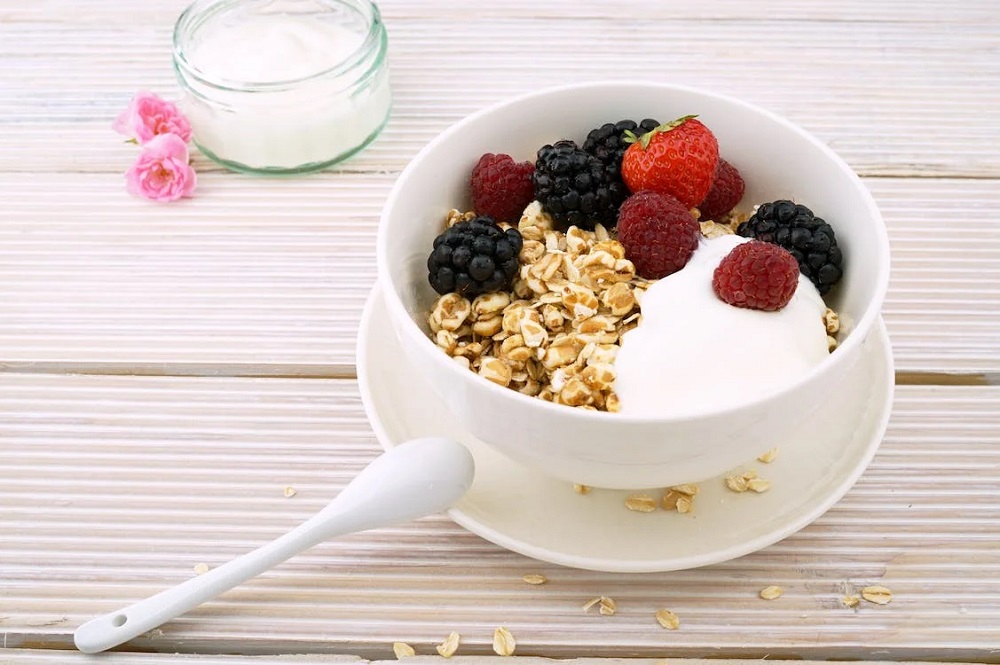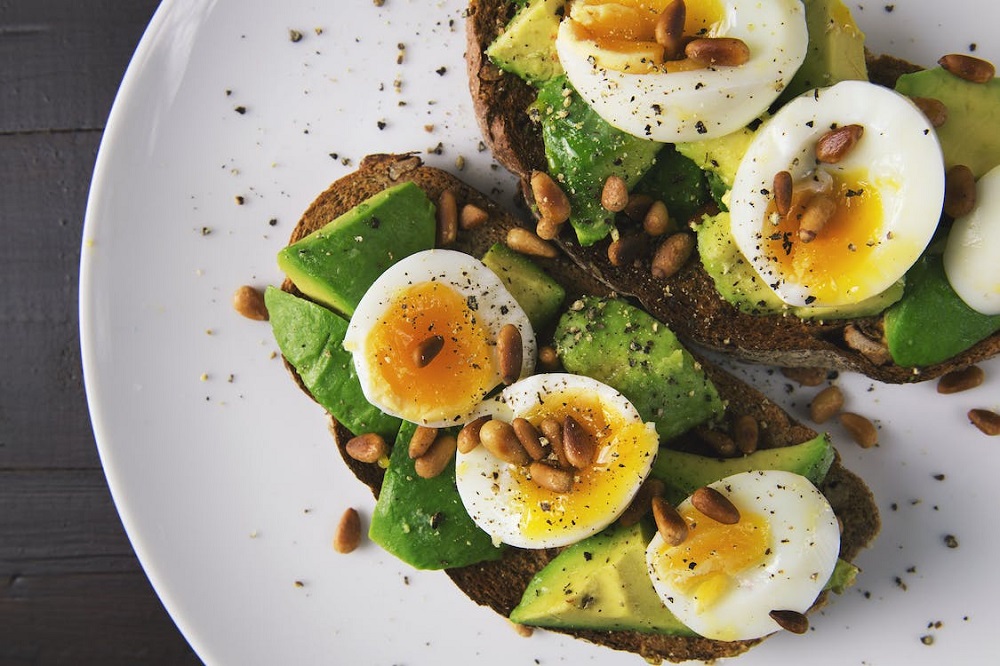Dairy-Free Meals Benefits for a Better Health

From improving digestion to promoting clearer skin, going dairy-free offers a myriad of advantages for your health and overall well-being. In this article, we will delve into the details of why you should consider incorporating dairy-free options into your diet and how it can positively impact your life.
Benefits of Dairy-Free Meals
Going dairy-free offers a range of benefits, making it a choice worth considering for many individuals. Let’s explore some of these advantages:
Improved Digestion
One of the most notable benefits of dairy-free meals is improved digestion. Many people experience discomfort or digestive issues when consuming dairy products. Lactose intolerance, which affects a substantial portion of the population, can lead to bloating, gas, and diarrhea. By eliminating dairy from your diet, you can bid farewell to these uncomfortable symptoms and enjoy a healthier digestive system.
A crucial aspect of improved digestion with a dairy-free diet is the relief it provides to individuals with lactose intolerance. Lactose intolerance is the body’s inability to digest lactose, the natural sugar found in milk and dairy products. When someone with lactose intolerance consumes these products, they can experience a range of digestive issues, from mild discomfort to severe cramps and diarrhea.
Switching to dairy-free alternatives, such as almond milk, soy yogurt, and lactose-free cheese, can be life-changing for these individuals. Not only does it eliminate the unpleasant digestive symptoms, but it also allows them to enjoy a broader variety of foods without worry.
Clearer Skin
For those battling skin issues, switching to a dairy-free diet might be a game-changer. Some individuals find that dairy consumption exacerbates acne and other skin conditions. Going dairy-free can lead to clearer, healthier skin, reducing the need for skincare products and treatments.
The connection between dairy and skin issues is a subject of ongoing research. It’s believed that the hormones and growth factors present in dairy products may influence the skin’s oil production and lead to clogged pores, ultimately causing acne.
Some individuals may have mild allergies or sensitivities to certain proteins in milk, which can trigger skin reactions. By removing dairy from your diet, you may experience a significant reduction in breakouts, redness, and other skin concerns.
It’s important to note that the effects of going dairy-free on skin can vary from person to person. While some may notice a dramatic improvement in a matter of weeks, others might experience gradual changes. Patience is key, as it may take some time for your skin to adapt to the absence of dairy. Remember to maintain a healthy skincare routine and consult with a dermatologist for personalized advice on managing skin conditions.
Weight Management
If you’re looking to manage your weight, adopting dairy-free meals can be a smart move. Many dairy products are high in saturated fats and calories, which can contribute to weight gain. By choosing dairy alternatives, you can maintain a balanced diet and achieve your weight management goals.
The role of dairy in weight management is closely linked to its calorie and fat content. While dairy is a valuable source of nutrients like calcium and protein, it can also be calorie-dense. This means that overconsumption of dairy products can lead to an excess of calories, contributing to weight gain. Additionally, the saturated fats in some dairy items, such as whole milk and certain cheeses, can be detrimental to your weight management efforts.
By opting for dairy-free alternatives, you can enjoy the taste and texture of your favorite dairy products without the associated calorie and fat load. Plant-based milk, such as almond or soy milk, often has fewer calories and less saturated fat. Plus, they come in various flavors, allowing you to customize your choices to suit your dietary needs. This way, you can maintain a balanced diet and potentially support your weight management goals more effectively.
Enhanced Bone Health
Contrary to popular belief, you don’t need dairy to maintain strong bones. In fact, dairy-free diets can still provide all the necessary nutrients for bone health. Calcium-rich alternatives like fortified plant-based milk, leafy greens, and almonds can keep your bones strong and healthy.
Maintaining healthy bones is essential at every stage of life. Many people associate dairy with strong bones due to its calcium content. While calcium is indeed vital for bone health, dairy-free individuals can easily meet their calcium requirements through other sources. Fortified plant-based milk, for example, often contains as much calcium as cow’s milk. Leafy greens like kale and collard greens, as well as nuts like almonds, are excellent sources of calcium.
It’s worth noting that a dairy-free diet can sometimes lead to improved bone health, as it reduces the intake of saturated fats that can interfere with calcium absorption. By choosing dairy-free options and focusing on calcium-rich foods, you can ensure that your bones remain strong and healthy, even without traditional dairy products in your diet. This approach is especially beneficial for those who are lactose intolerant or have dairy allergies.
Reduced Risk of Allergies
Dairy products are a common source of allergies, particularly among children. By removing dairy from your diet, you can reduce the risk of developing dairy-related allergies or sensitivities, leading to a healthier and more comfortable life.
Childhood allergies are a growing concern, and dairy allergies are among the most prevalent. These allergies can manifest in various forms, ranging from mild hives and digestive discomfort to severe anaphylaxis. By eliminating dairy from a child’s diet, parents can significantly reduce the risk of allergic reactions.
In some cases, dairy allergies can persist into adulthood, causing discomfort and potentially life-threatening reactions. For individuals with dairy allergies, adopting a dairy-free diet is not only beneficial but often necessary for their well-being. By replacing dairy with safe and nutritious alternatives, they can enjoy a diet that is both delicious and free from the fear of allergic reactions.
Better Heart Health
Many dairy products are high in saturated fats and cholesterol, which can contribute to heart issues. Choosing dairy-free options can lead to improved heart health and a reduced risk of heart disease.
Saturated fats, which are abundant in some dairy products like butter, cheese, and whole milk, can have adverse effects on heart health. They can increase levels of LDL cholesterol, often referred to as “bad” cholesterol, and contribute to the development of heart disease. By switching to dairy-free alternatives, individuals can reduce their intake of saturated fats and lower their risk of heart-related issues.
Plant-based milk and dairy alternatives, such as almond and soy milk, often contain heart-healthy nutrients like unsaturated fats and fiber. These components can help maintain healthy cholesterol levels and support overall cardiovascular well-being. By incorporating dairy-free choices into your diet, you’re taking a proactive step toward a healthier heart.
FAQs
Is a dairy-free diet suitable for everyone?
Absolutely. While some individuals may choose a dairy-free diet due to allergies or intolerances, it’s a healthy choice for anyone looking to improve their overall well-being.
What are some dairy alternatives?
Dairy alternatives include almond milk, soy milk, coconut yogurt, and cashew cheese, providing a wide variety of options for those going dairy-free.
Will I miss out on calcium without dairy?
No, you can still obtain calcium from non-dairy sources like fortified plant-based milk, tofu, and leafy greens.
Can a dairy-free diet help with lactose intolerance?
Yes, a dairy-free diet is the most effective way to manage lactose intolerance and prevent uncomfortable digestive symptoms.
How long does it take to see improvements in skin when going dairy-free?
The timeframe varies from person to person, but many individuals report clearer skin within a few weeks of eliminating dairy from their diet.
Are there any downsides to a dairy-free diet?
While a dairy-free diet offers numerous benefits, it’s essential to ensure you’re still getting the necessary nutrients from other sources to maintain a balanced diet.
Conclusion
Incorporating dairy-free meals into your diet is a positive step toward better health and overall well-being. From improved digestion to clearer skin and better heart health, the benefits are substantial.
Whether you’re lactose intolerant, aiming for weight management, or simply want to enjoy the advantages of a dairy-free lifestyle, this dietary choice can be transformative. Make the switch today and experience the positive changes it can bring to your life.








